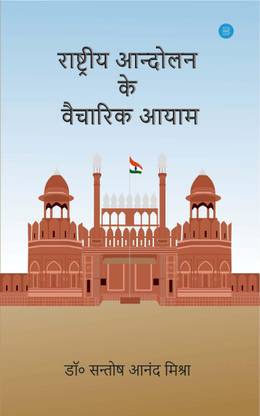Balkrishna Hari Chapekar: A Pioneer of Revolutionary Consciousness in India (1873 - 12 May 1899)
"Freedom is not a plea, it is a right – and rights are seized, not requested."
This sentiment was the guiding principle of Balkrishna Hari Chapekar’s life.
Introduction
Balkrishna Hari Chapekar, also known as Bapurao Chapekar, was one of the valiant warriors of India’s early freedom movement—a time when much of the country was still engulfed in fear and despair. Along with his younger brothers, Damodar and Vasudev Chapekar, he ignited the spark of armed revolution against British imperialism, inspiring generations of youth to take up the path of resistance. The Chapekar brothers were among the first revolutionaries to raise weapons against injustice, shaking the conscience of a sleeping nation.
Background and Early Life
Born in 1873 in Pune into a traditional, educated, and religious Brahmin family, Balkrishna was deeply influenced by his father, Hari Chapekar, who had a passion for devotion and Marathi literature. From an early age, Balkrishna was studious, inquisitive, and spiritually inclined. He immersed himself in the study of Indian culture, history, and scriptures, developing a critical awareness of the socio-political condition of his nation.
At that time, Maharashtra was witnessing a wave of awakening under the leadership of Lokmanya Bal Gangadhar Tilak. His newspapers Kesari and Maratha played a significant role in kindling nationalist sentiments in the minds of the Chapekar brothers. The discriminatory and exploitative policies of the British deepened their conviction that freedom would not come through petitions or appeals.
The Plague Epidemic and British Oppression
In 1896, Pune was struck by a devastating outbreak of bubonic plague. Instead of responding with sensitivity and compassion, the British administration resorted to repression and humiliation. A British officer, Walter Charles Rand, was appointed as the ‘Plague Commissioner.’ Under his orders, intrusive house searches were carried out, Indian women were dishonored, religious sentiments were disregarded, and even children were harassed.
This oppressive response to a humanitarian crisis enraged the Chapekar brothers. To them, this was not just a public health emergency but an attack on Indian dignity and self-respect. Their anger turned into a resolve for action.
Assassination of British Officer Rand
Balkrishna, Damodar, and Vasudev Chapekar decided that passive protest would no longer suffice; direct revolutionary action was necessary. They identified Rand as the symbol of British arrogance and decided to eliminate him.
On 22 June 1897, while Pune was celebrating Queen Victoria’s Diamond Jubilee, Rand and his aide Lieutenant Ayerst were returning in a carriage. The Chapekar brothers ambushed them and fired gunshots—Rand was killed, and Ayerst was severely injured. This marked the first public assassination of a British official in colonial India, sending shockwaves through the British administration.
Arrest and Martyrdom
Following the assassination, a massive manhunt was launched. Eventually, the Chapekar brothers were apprehended. During interrogation, they faced brutal physical and psychological torture, yet they remained unshaken in their resolve. They proudly confessed to their actions and embraced death with dignity.
On 12 May 1899, Balkrishna Hari Chapekar was executed in Pune Jail. His brothers, Damodar and Vasudev, were also hanged soon after. Their martyrdom was not just the sacrifice of three young men—it was the birth of India’s revolutionary movement that would inspire countless others.
Significance and Legacy
-
First Revolutionary Sacrifice: The Chapekar brothers were the first to launch an armed rebellion against British rule in modern India. Their actions were well-planned and driven by patriotic ideals.
-
Source of Inspiration: Their sacrifice deeply influenced revolutionaries like Vinayak Damodar Savarkar, Khudiram Bose, Bhagat Singh, Rajguru, and Chandrashekhar Azad. Savarkar hailed them as “the first revolutionaries of modern India.”
-
Unity of Religion and Nation: Balkrishna was deeply religious but never sectarian. For him, protecting Indian culture and self-respect through revolution was a sacred duty.
-
Beginning of Revolutionary Consciousness: At a time when even speaking of freedom was labeled sedition, the Chapekar brothers fired the first symbolic bullet of resistance.
Conclusion
The lives of Balkrishna Hari Chapekar and his brothers form a blood-soaked yet inspiring chapter in the history of India’s freedom struggle. They proved that even a handful of courageous individuals could shake the foundations of an empire. Their sacrifice was not an isolated act—it was a beacon of light for India’s long march to independence.
“Slavery is unacceptable – Freedom is inevitable.”












0 Comments
Thank you